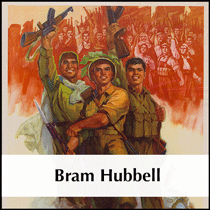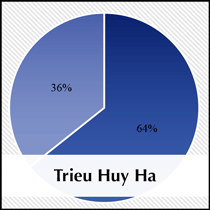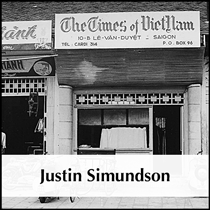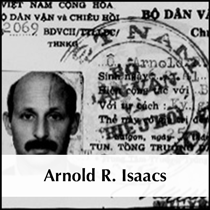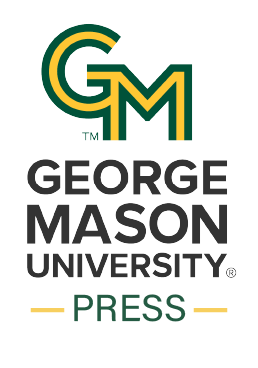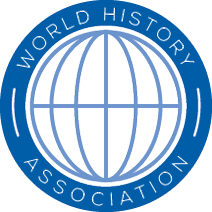Announcing a New Issue (Vol.19 No. 3) and a New Website
Announcing the publication of the Fall 2022 issue (Vol. 19 No. 3) of World History Connected, now published by George Mason University Press. Long-time readers of the journal will find a new look, new features, and technical capabilities. One of them is the journal’s first audio files, appropriate for this issue’s Forum on “Oral History Informing World History,” Guest Edited by two leaders in that field, Tiffany Trimmer and Julie Weiskopf.
Trimmer and Weiskopf have gathered articles that offer the latest in scholarship that Oral History serves World History by deepening archival resources by opening up new pathways to evidence and interpretations of both local and global events. The articles they have gathered also provide new kinds of materials to facilitate world history teaching that can serve as drivers of pedagogical innovations “that enhance how we teach students about collecting, preserving, and interpreting historical evidence,” as well as “humanizing the Other by allowing students to connect past lives to their own, and gain from the experience.” By illuminating both the benefits of research in this field and also the ease in which that work can be introduced into the classroom, the Forum fulfills this journal’s commitment to connecting research and teaching world history wherever possible.
The Forum is followed by two articles. The first, by Andrew Jarboe, is in keeping with the “recent global/imperial turn in First World War studies that “decenters the fighting in the trenches of France in favor of comparison across fronts” and also “places analysis of the experiences of soldiers serving in a colonial army at the heart of the discussion,” which is in keeping with the also trending emphasis on human agency in world history. The article contributes to our understanding of the changes wrought by the First World War through a comparative analysis of the medical treatment afforded Indian soldiers fighting in Europe, and that provided soldiers in the British Indian Army during the Mesopotamian Campaign in Iraq, where conditions posed more challenges to the health of those combatants than they endured on the Western Front.
The second article is by Thomas Mounkhall, a past leader of teaching workshops in world history in the United States and also in Cambodia for “Teachers Without Borders.” In recent years, he has taken a great interest in the use of Oaxaca in southern Mexico as a touchstone for modern world history, leading to work which has been published previously in this journal. Here, Mounkhall both encapsulates and adds to those efforts by using that city’s Jesuit Church to illustrate the blending of Indigenous and Spanish colonial cultures. He does so by offering a series of active learning assignments for secondary school and university students. While he acknowledges that some of these assignments may at first glance be considered by some instructors as too demanding for secondary school students, he has shown that even the most challenging of them can be calibrated for use in any classroom to successfully address critical thinking and world history understandings, particularly periodization and polycentrism, while also addressing cultural and technological diffusion, imperialism, macro-change, colonialism, secularization, and self-determination.
These articles are followed by a first and possibly continuing special feature, “Dialogues in World History.” Here, Patrick Manning, a former president of the American Historical Association, and Tom Laichas, the initial co-editor of this journal, explore the meaning and implications for both anthropology and world historical studies of the already popular and controversial book by David Graeber and David Wengrow, The Dawn of Everything: A New History of Humanity (2021).
Book Reviews
This issue’s book reviews range across time, empires, encounters, gender and religion. Michael Fisher reviews Sumit Guha’s Tribe and State in Asia through Twenty-Five Centuries (2021). Michael Laver reviews David Lindenfeld’s World Christianity and Indigenous Experience (2021). Robert Schaffer reviews editors Boyd Cothran, Joan Judge, and Adrian Shubert’s Women Warriors and National Heroes: Global Histories (2020). Andrew Wender reviews Adeeb Khalid’s Central Asia: A New History from the Imperial Conquests to the Present (2021), while Reid Wyatt, reviews Tonio Andrade’s The Last Embassy: The Dutch Mission of 1795 and the Forgotten History of Western Encounters with China (2021).
The issue concludes with the journal’s “Submissions Guide and Style Sheet.”
About World History Connected
World History Connected is a grant-supported open-sourced, double-blind peer reviewed affiliate of the World History Association. It serves as a means of creating community among all those devoted to research and teaching world history. Not every article “connects” or bridges these twin objectives, but published reviews have judged this e-journal successful in achieving its dual goal in supporting and disseminating globally both archivally based research and the scholarship of teaching. Over its 19 years of existence, it has been guided by world historians and educators devoted to providing publication opportunities for senior, rising, and scholars just entering the field, offering the latter assistance in reaching the highest standards for accessible writing, referencing, and formatting, whether the article is, or is not, accepted for publication. Its editorial staff includes recent presidents of the World History Association and distinguished Advanced Placement and Master Teachers, none of whom are paid for their service.
Those interested in submitting articles to the journal should email the Editor, Marc Jason Gilbert(mgilbert@hpu.edu), with the subject line, “WHC Submission,” adding their name and short title of the submission. Prospective authors of articles should refer to the journal’s “Submissions Guide and Style Sheet” before submitting their articles for peer review. The Guide can be found on the journal’s website (https://journals.gmu.edu/whc/submission-guidelines) or sent upon request by the Editor. Like all academic journals, it reserves the right to decline to publish any submission.
World History Connected welcomes expressions of interest from those who might like to serve as Guest-Editors for its Forums. Calls for Papers to contribute to announced Forums, as well as for individual articles, are regularly posted on H-Net, the World History Association’s Newsletter and social media.
Book reviews are welcome via preliminary contact with the journal’s Book Review Editor, Cynthia Ross (Cynthia.Ross@tamuc.edu). Readers can find a list of books available for review on the journal's website: https://journals.gmu.edu/whc/books-available-for-review
The journal is published 3 times a year (Winter, Spring and Fall), with additional material shared on social media through its social media editors, Angela Lee (mrsleehistory@gmail.com), Suzanne Litrel (suzannemlitrel@gmail.com), and Joe Snyder (jsnyderwvu@gmail.com). Past issues of World History Connected are still available on the previous website, maintained by the University of Illinois Press: https://worldhistoryconnected.press.uillinois.edu. Soon George Mason University Press will move all past issues to the new website.


